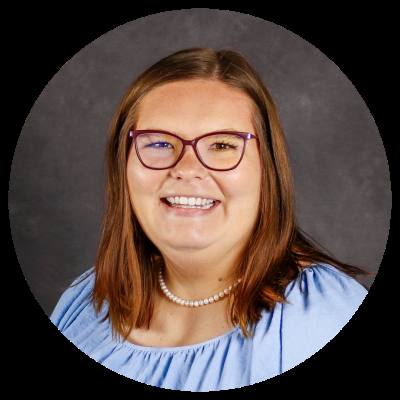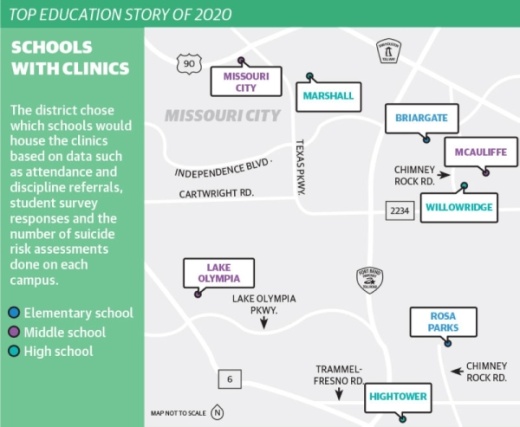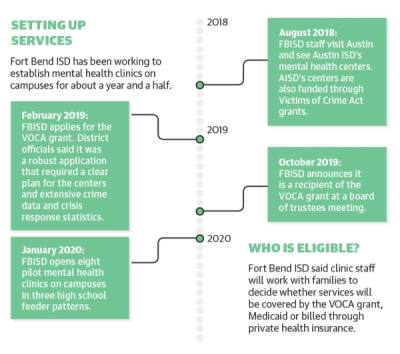Steve Shiels, FBISD's director of behavioral health and wellness, said the grant will help the district cover the startup costs associated with the mental health clinics as well as funding some of the therapeutic services.
“The driving force behind the [grant] application was the growing mental health needs of our students, families, and even staff,” Shiels said in an email. “We wanted to remove the barriers of money, travel and even time for our families by providing therapeutic services and support on campus where students spend a majority of their days.”
All FBISD staff, students and parents who have been victims of a crime, including domestic violence; victims of bullying; witnesses to a crime; or affected by crime can access the counseling services provided at the clinics at no cost. Other individuals can use Medicaid or private health insurance to pay for the services.
“The primary objective and mission of the school-based mental health centers are to remove barriers, such as time, money, and transportation, for students and their families to receive high quality counseling and therapeutic services,” Shiels said in an email. “While counseling outside of school will remain a good fit for some families, the campus-based centers will ensure consistent and quality services convenient for all families and for those in most need.”
The grant was awarded under the 1984 federal Victims of Crime Act. That law established a Crime Victim’s Fund and allows for state and local service providers to apply for grants in order to fund their services. Shiels said FBISD plans to reapply annually and look for additional funding opportunities in order to continually fund the mental health centers.
At a board of trustees meeting Oct. 21, FBISD announced the receipt of the grant, and several trustees, including Kristin Tassin, voiced their excitement. Tassin said in the 5 1/2 years she has been on the board they have talked about wanting mental health and behavior specialists on campuses.
“I think these mental health clinics are the start of that,” Tassin said. “And I think it’s going to make a huge difference, not just in the lives of our kids, but really for our teachers and staff members who don’t know what to do.”
Shiels said the idea for the clinics was inspired by an August 2018 trip to Austin where state Rep. Rick Miller, R-Sugar Land, showed FBISD staff Austin ISD’s VCA-funded centers. Like AISD’s clinics, FBISD’s will be staffed by Vida Clinic mental health professionals.
The eight clinics are located at Hightower High School, Marshall High School, Willowridge High School, Lake Olympia Middle School, Christa McAuliffe Middle School, Missouri City Middle School, Rosa Parks Elementary School and Briargate Elementary School. They are open to anyone in the district, regardless of whether they work at or attend that specific school.
Shiels said these campuses were chosen based on data such as attendance and discipline referrals; the results of the Pride survey, which tracks self-reported data including drug and alcohol use, feelings of safety on campus and mental health concerns; and the number of suicide risk assessments at each campus.
“Like with physical health, providing for students’ mental health needs is important in establishing good academic habits and developing attributes associated with the District’s Profile of a Graduate,” Shiels said in an email. “Most importantly, is the district’s commitment to support the whole child with health development through this initiative.”






